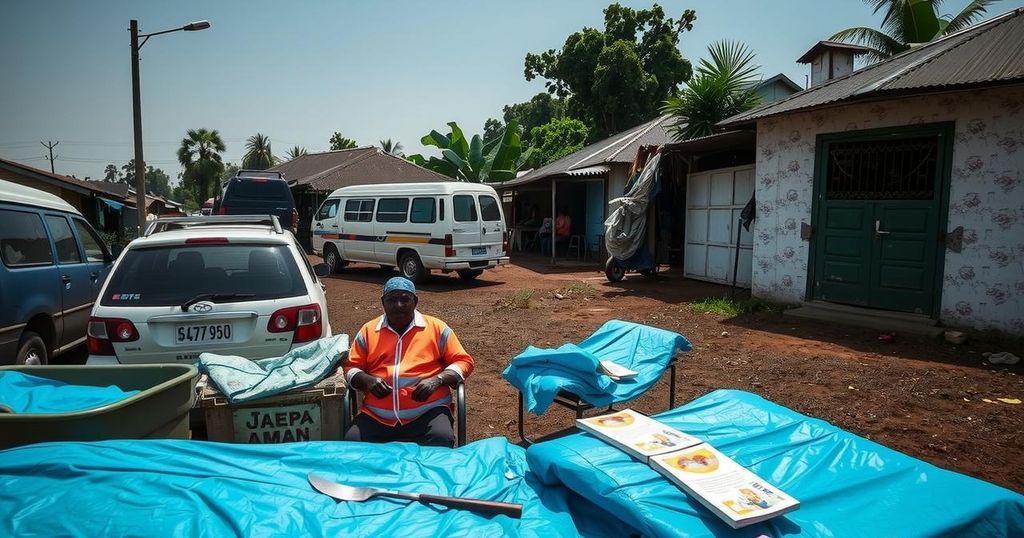Malaria is the suspected cause behind an outbreak in the DRC that has claimed over 80 lives. Symptoms include fever and respiratory issues. While testing reveals malaria’s prevalence, other causes, particularly a possible viral infection, are under investigation. Health agencies are actively pursuing further testing and analysis to combat the outbreak.
The Democratic Republic of Congo (DRC) is currently faced with a mysterious outbreak of illness that has resulted in over 80 fatalities. According to Africa’s principal health agency, malaria is deemed the most probable cause of this illness. Symptoms reported by patients include fever, headaches, respiratory difficulties, and anemia. Malaria, a disease endemic to this region and transmitted by mosquito bites, appears to be prevalent among the affected individuals, with malnutrition further amplifying the crisis.
Despite initial findings pointing to malaria, health officials remain vigilant and are exploring the possibility of additional health factors influencing the outbreak, particularly after an adult male patient exhibited symptoms reminiscent of hemorrhagic fever. This prompted Dr. Ngashi Ngongo from the Africa Centres for Disease Control and Prevention (Africa CDC) to note that there exists a potential for a concurrent viral infection. Samples from this deceased individual are currently being analyzed in Kinshasa, with results anticipated in the forthcoming week. Consequently, the Africa CDC, alongside the World Health Organization (WHO) and other relevant entities, is intensifying its investigations and further testing in response to these alarming developments.
Malaria is a significant public health issue in the Democratic Republic of Congo, which bears one of the highest malaria burdens worldwide. The illness is transmitted through parasites that are carried by mosquitoes and can lead to severe health complications and mortality. The re-emergence of a mysterious illness that shares symptoms with malaria in the DRC raises critical health concerns. Furthermore, malnutrition among the population exacerbates the impact of infectious diseases like malaria, warranting a holistic health response.
In conclusion, the outbreak in the Democratic Republic of Congo, primarily attributed to malaria, underscores the complex interplay of infectious diseases and health conditions such as malnutrition. The ongoing investigations by health agencies aim to clarify the situation and provide effective health interventions. Addressing both malaria and potential accompanying infections will be crucial in managing this outbreak and protecting public health in the region.
Original Source: www.bbc.com






